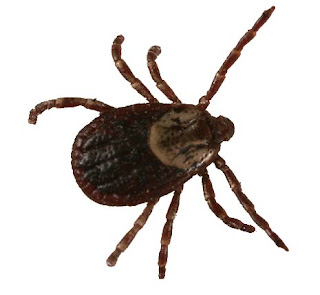Feline and Canine Surgery/Anesthesia
Your Pet Is Having Surgery/ Anesthesia - What you need to know
It is important to know that we will have safety as our primary concern when your pet comes in for an anesthetic procedure and that not all veterinary hospitals approach surgery/ anesthesia the same way. Advancements in veterinary medicine have allowed anesthetic procedures to be much safer than ever before.
At River Road Veterinary Hospital, your pet will receive the highest quality personalized care including pre - anesthetic testing (blood work), advanced monitoring by trained pet nurses, pain management, body temperature control, and the safest anesthesia. We care for your pets as though they are our own.
What to expect when your pet comes home from the hospital
Caring for the incision: All incisions should be kept clean and dry. Keep your pet calm and quiet as directed. Leash walking only for dogs 10 -14 days. Do not bathe or let your pet go swimming (not as likely if your pet is a cat:) for 14 days. Bruising or bleeding may be seen after surgery and usually is not a concern unless accompanied by a steady stream of drainage, worsening pain, or progression of swelling. Do not let your pet (or other pets) lick the incision. If your pet is licking the incision then please come to the hospital to get an elizabethan collar.
Coughing: Some coughing may be noticed after general anesthesia. This is caused by irritation from the endotracheal (breathing) tube.
Food and water: Make sure your pet is eating and drinking. Watch for vomiting and diarrhea and call if noticed.
We ask that you contact the hospital if you have any questions or concerns.
It is important to know that we will have safety as our primary concern when your pet comes in for an anesthetic procedure and that not all veterinary hospitals approach surgery/ anesthesia the same way. Advancements in veterinary medicine have allowed anesthetic procedures to be much safer than ever before.
At River Road Veterinary Hospital, your pet will receive the highest quality personalized care including pre - anesthetic testing (blood work), advanced monitoring by trained pet nurses, pain management, body temperature control, and the safest anesthesia. We care for your pets as though they are our own.
- Pre - anesthetic blood work - 24 - 48 hours before your pet’s procedure, pre-anesthetic blood work will be collected by a pet nurse. This is a full complete blood count and blood chemistry. These tests help alert us if there is an issue with the liver, kidneys, blood count etc. This is a food fasted sample, meaning no food 8 - 12 hours prior to collection. Water is fine.
- The night before your pet’s procedure - your pet is not to have any water or food 8 hours before admit. Watch a video of Brix having a dental cleaning.
- Morning of the procedure - You will meet with the veterinarian for a pre-anesthetic exam and to answer any questions you may have about the procedure. Your pet will be admitted to the hospital.
- Starting anesthesia - A pet nurse will administer a premedication injection to reduce pain, calm your pet and reduce the amount of anesthesia needed. An intravenous catheter is placed and a short acting drug is given so the endotracheal (breathing) tube can be placed. Gas anesthetic is administered through this tube based on the needs of the patient. I.V. fluids are also given through the catheter to help the body maintain appropriate blood pressure. Monitors are attached to your pet and anesthetics are adjusted based on monitoring parameters such as blood pressure, heart rate, oxygen saturation and respirations.
- Surgery and Recovery - Our surgeries are preformed in a sterile surgical suite by the doctor. Your pet is continually monitored by the attending pet nurse and once surgery is completed your pet will be transferred to ICU for recovery where the endotracheal tube is removed. Water circulating blankets are used to keep your pet warm and comfortable. Your pet continues to be monitored by our trained team during the recovery period and for the rest of the day. We will contact you when your pet has safely recovered to give you an update and schedule a discharge appointment.

- Discharge Appointment - Your discharge appointment is the time that the pet nurse will go over post op instructions. If you have any questions for the Doctor just ask the nurse and they will get the Dr for you.
What to expect when your pet comes home from the hospital
Caring for the incision: All incisions should be kept clean and dry. Keep your pet calm and quiet as directed. Leash walking only for dogs 10 -14 days. Do not bathe or let your pet go swimming (not as likely if your pet is a cat:) for 14 days. Bruising or bleeding may be seen after surgery and usually is not a concern unless accompanied by a steady stream of drainage, worsening pain, or progression of swelling. Do not let your pet (or other pets) lick the incision. If your pet is licking the incision then please come to the hospital to get an elizabethan collar.
Coughing: Some coughing may be noticed after general anesthesia. This is caused by irritation from the endotracheal (breathing) tube.
Food and water: Make sure your pet is eating and drinking. Watch for vomiting and diarrhea and call if noticed.
 |
| 176 River Road Andover, MA 01810 www.riverroadveterinaryhospital.com |
We ask that you contact the hospital if you have any questions or concerns.










